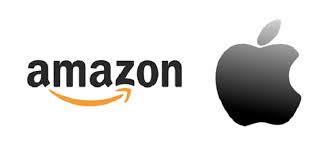
Traditional medtech strategics Johnson & Johnson, Medtronic, Abbott, and now the likes of tech giants Apple, Google, and Amazon are all aggressively investing in digital health, smartphone applications, wearable devices, and pursuing other strategies.
In the last decade smart devices have managed to find their way into nearly every facet of life, with healthcare being no exception. Packaged into accessible consumer goods that often function as extensions to an individual’s smartphone, it is now possible to obtain real-time diagnostic information for individuals. Vitals such as blood pressure, heart rate, blood glucose levels, and electrocardiograms can all be continuously monitored and data seamlessly uploaded through a smart-enabled device. Many of these vitals can now be measured through Android or Apple compatible devices, making them easy-to-use and accessible to a large percentage of the population.
Data collected through wearable devices can then be utilized by physicians to individualize and monitor the effectiveness of therapies for patients suffering from chronic conditions such as hypertension, heart failure, arrhythmia, and diabetes and monitor the effectiveness of selected therapies.
But today's wearable devices are not only limited to the collection of patient-specific diagnostic information. Start-up medical device manufacturers are at the forefront of combining patient-friendly wearables with advanced real-time therapies that bring ease-of-access and relief to patients suffering from chronic conditions.
Icaria Medical is developing its ICARIA blood pressure monitoring system, which packages deep learning algorithms into two bracelets capable of continuously collecting blood pressure vitals.
GyroGear is developing a wearable glove device to reduce hand tremors in patients suffering from Essential Tremor and Parkinson’s disease.
Sana Health’s sleep mask provides relief and promotes healthy sleep in patients suffering from insomnia and chronic pain. The wearable device is currently in development for a number of conditions, including: fibromyalgia, neuropathic pain, oncology pain, opioid use disorder, and severe pain.
The wearable devices market is here to stay. With a current market value estimated at over $30 billion in 2019, consumers have shown a willingness to adopt advanced solutions that improve their lifestyles without disruption.
In February 2020, 100 venture funded medtech startups will gather at the Emerging Medtech Summit to share their investment and strategic partnering needs with an audience of active investors and strategic buyers.

Schedule an exploratory call
Request Info17011 Beach Blvd, Suite 500 Huntington Beach, CA 92647
714-847-3540© 2025 Life Science Intelligence, Inc., All Rights Reserved. | Privacy Policy










